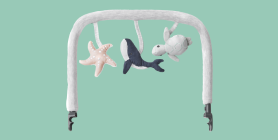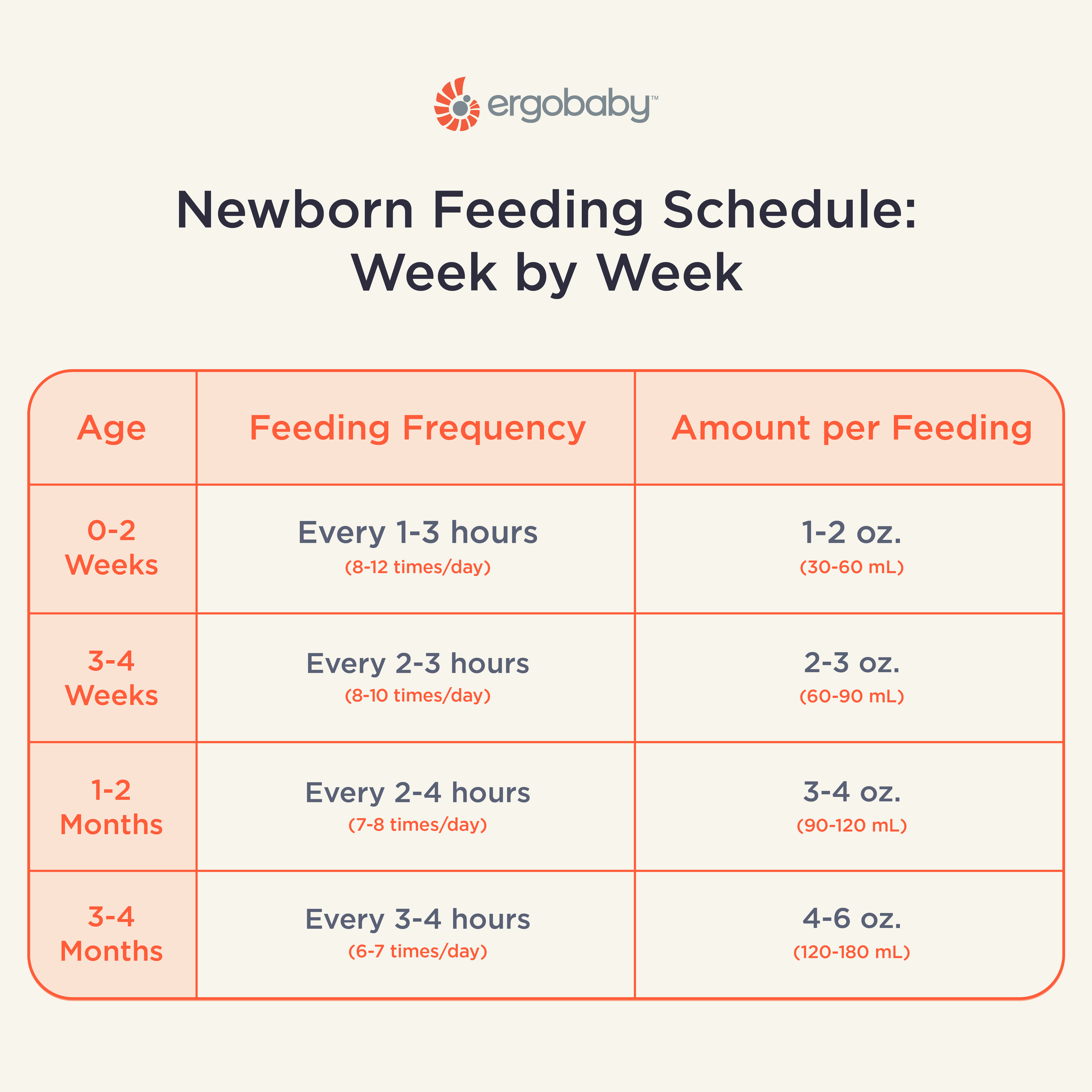Breastfeeding & Nutrition

Breastfeeding Success and Baby Nutrition
Nourish with comfort. Thrive with ease.
From first latch to first foods, we’re here to help you and your baby get the hang of breastfeeding—because your journey should be as easy as it is rewarding.
High expectations. Low milk supply. The two sides of breastfeeding.
Challenging beginnings. Beautiful bonds.
Breastfeeding is a learning curve—for both you and your baby. With thoughtfully designed products, we make it easier for you to feel confident and supported every step of the way.
FAQs: Common Breastfeeding Questions Answered
Breastfeeding, Simplified
plus-circle
How do I get a good latch?
plus-circle
Can I breastfeed in a baby carrier?
plus-circle
What clothing makes breastfeeding easier?
plus-circle
When should I wean my baby?
Breastfeeding Tips from Experts


From Latch to Letdown
• Position your baby comfortably with a supportive breastfeeding pillow.
• Use a baby carrier to feed hands-free while staying close to your baby.
• Try different nursing positions to see what’s comfortable and helps you get a good latch.
• Get a cozy nursing bra for easy feeding, pumping, and all-day comfort.
• Whether it’s breast milk, formula, or a combo of both, fed is best!
• Take care of your mental health so you can care for baby.
Ergonomic Positioning, Meal Time Success
Products Designed for You and Your Baby

Newborn Advantage
When everything’s new, the Ergobaby Embrace baby carrier helps you and your newborn get into the rhythm of breastfeeding.

Options for Every Budget
Pre-loved and on sale carriers so you don’t have to settle for less.

Featured Breastfeeding Essentials and First Food Helpers
Your Feeding Journey Starts Here
Featured Products for Better Sleep
Sleep Essentials to Save Your Nights
Make Breastfeeding Easier Today
Comfort, Convenience, Confidence—All in One Place
Whether you're feeding at home or on the go, Ergobaby has the tools you need to nourish your baby and yourself.
Blog Post Header
A newborn feeding schedule is one of the first routines parents try to establish, and understanding how your baby’s needs change week by week can make this process smoother. From breastfeeding to bottle-feeding, this guide will help you create a feeding schedule for your newborn that supports their growth and development, while answering common questions and concerns.
Newborn Feeding Schedule By Age
Babies grow rapidly in their first few weeks, and their feeding habits evolve just as quickly. Here’s what you can expect during the early stages of your infant’s feeding journey.
Weeks 1–2: The First Days
In the first days of life, your newborn’s stomach is tiny, about the size of a cherry. They’ll need frequent feedings, usually every 1–3 hours, as they adjust to life outside the womb.
- Breastfeeding: Feed your baby 8–12 times in 24 hours. Each session might last 20–45 minutes, depending on your baby’s latch and hunger.
- Bottle-feeding: Start with 1–2 ounces of formula per feeding
Q&A:
What are boosties? Bobbie Boosties are infant supplements that can be added to an infant’s diet, whether they’re breastfeeding, formula feeding, or doing a bit of both (also known as combo-feeding)! Do breastfeeders need added vitamins or probiotics? Many parents don’t realize that breast milkThe holiday season is upon us, and for many families, that means hitting the road to visit loved ones or embark on exciting adventures. While holiday road trips bring joy and cherished memories (maybe more so when we look back and forget the fussy kiddos asking “are we there yet?” ), they can also present unique challenges, especially for breastfeeding moms. Of course you don’t want to loose your rhythm and all the progress you’ve made in your breastfeeding journey and while it may seem daunting, it IS possible to have minimal disruption in your routine. Let’s explore the importance of breastfeeding during your holiday travels and provide you with essential tips to make breastfeeding on the road more comfortable and enjoyable for both you and your baby.
Benefits of Breastfeeding During Road Trips
Breastfeeding is not just about providing nourishment; it also offers a ton of benefits that are particularly advantageous during road trips with baby. First and foremost, breastfeeding
Jump to a Section:
Breastfeeding is a beautiful and natural way to nourish and bond with your baby, but it can also present its fair share of challenges. Whether you're a first-time mom or have previous breastfeeding experience, this ultimate guide aims to provide you with the knowledge, tips and techniques you need to navigate the joys and complexities of breastfeeding with confidence. In this post, we'll address common concerns and dispel myths surrounding breastfeeding, helping you make informed decisions that align with your individual needs and circumstances. So, let's embark on this incredible journey together, arming ourselves with knowledge and unwavering support as we navigate the incredible world of breastfeeding.
Breastfeeding Myths
First, let’s address a few myths. It’s no secret that everyone has their own experiences and opinions when it comes to breastfeeding, but it can be hard to know what’s true and what’s actually false. So, here are a few myths that commonly get passed around. “Colostrum
After healing and resting from pregnancy and childbirth, many moms feel the need to bring some more movement into their routine. Often moms are concerned about how this will affect breastfeeding. Luckily, studies have shown that moderate exercise will not affect your milk supply. Bringing more movement into your life can bring not only physical strength, but the mental clarity mothers need! Be sure to check with your midwife or doctor before returning to physical activity. New moms might find it helpful to think outside the exercise box. There are other options outside of going to the gym or starting a complicated routine. Physical movement that nourishes your whole body can be added throughout your day. Here are a few ways that have helped other moms bring movement into their lives with a new baby:
- Start small and work up. Sometimes we get so overwhelmed with the work ahead that we don’t even want to start. Keep in mind that you have to start someone and the time will pass anyway.
When I first got pregnant I had no idea what breastfeeding would be like. I just assumed it was a way I would feed my baby but didn’t even consider the difficulties or support a mother needed to get through that journey! Now 3 children later, I STILL ask for tips/help sometimes. Breastfeeding is such a beautiful thing to be able to do but it also has it’s challenges. From the initial latch struggles, to the fatigue from nursing through the night, and just having to be there on demand to breastfeed. Nonetheless there are many ways to make it work well for you through the 2 years (or less or more depending on your situation). Here are 10 things that can help you through your journey.
1. A Strong Mindset
With each baby, the breastfeeding experience will be different. You supply will vary, it might hurt more or less, you might get tired more or less, your baby might keep you up all night and so on. There’s so much that goes into breastfeeding your baby that it is a super sensitive subject
Whether you are a brand new mom or have been a mom for years and have a brand new baby, breastfeeding can seem overwhelming at times! I’m going to give my top five breastfeeding tips for new moms today– they’ll help you get off on the right start and know what to do if things get tricky.
1. Make sure you have a support system.
Research shows that Moms without support often wean in the first week postpartum. Create a small support circle you can call on in those early days, weeks, and months with a new baby. A supportive partner, family member, neighbor, or online forum can really be a game changer!
2. Don’t suffer in pain!
Some nipple soreness is normal, due to postpartum hormone changes and your breast tissue stretching. This is common the first few weeks. The pain should not last more than 60 seconds or be a toe-curling pain. This is called the “60 second rule”. If you have “ouch-ouch-ouch!” pain that lasts longer than 60 seconds, seek some professional help to make sure that baby is
I get asked many questions about increasing milk supply. When I meet with moms who ask how to increase their supply, I first like to ask WHY they are worried about their supply. Many times it’s because baby is signaling to increase feeds, which actually indicates a growth spurt rather than a problem with your supply. I like to help moms create confidence in themselves and their ability to feed their baby. So before you doubt yourself, trust the process! Remember that as you listen to baby’s cues and feed on-demand, it’s likely that your supply is just fine. Below are some of my top tips for increasing milk supply. Remember that any one of these might make a difference with you, but usually a combination will be the most effective. Keep in mind that increasing breast stimulation is the best way to increase your milk production. Here are my tips for increasing milk supply:
- Ensure an optimal latch. Milk is made on a supply and demand principle. The more milk is removed, the
In preparation to write an earth-shattering piece on nutrition for pregnancy, I realized the recommendations we give to pregnant women are suspiciously close to ones we give to regular people. There are the pregnancy-specific no-no’s (no alcohol, smoking, caffeine, raw fish, or lunch meat), but the do’s are common recommendations for a healthy lifestyle: Eat A Rainbow of Foods! Drink So Much Water!! Don’t Drown Yourself in Refined Sugars!! Please Exercise! Whole foods (those which are unprocessed and as close to their natural state as possible) are your best bet in giving your baby the best nutrients for growth. Our goal is to enjoy nutrition from all the different food groups in balanced amounts. Since you already know the basic tenants of nutrition (eat your fruits and veggies, etc.), let’s focus specifically on why you need extra protein and a bunch of nutrients during pregnancy and how to find them in whole foods.
Protein is Key
We learned in school that protein is a key building block









































